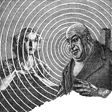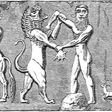Introduction to Philosophy on the Fringes
00:00:03
Speaker
Welcome to Philosophy on the Fringes, a podcast that explores the philosophical dimensions of the strange. We're your hosts, Megan Fritz and Frank Cabrera.
Exploring the Enneagram
00:00:12
Speaker
In this episode, we're talking about the Enneagram.
00:00:15
Speaker
Is the Enneagram a legitimate science of personality? What even is personality? And how much of our lives does personality determine?
Podcast Promotions and Miniseries Introduction
00:00:39
Speaker
This episode is brought to you in part by another fantastic show, the What Matters Most podcast, which is hosted by my friend John W. Martins. It is a production of the Center for Christian Engagement at St. Mark's College at the University of British Columbia.
00:00:56
Speaker
What Matters Most tackles the big questions of religion, spirituality, philosophy, and theology with an array of fascinating guests bringing their expertise to these subjects.
00:01:07
Speaker
And I'm not just saying that because I was a guest on the show a few months ago. um I'm actually not, though. i um There's more interesting guests than me. So definitely check out the What Matters Most podcast on Apple Podcasts.
00:01:21
Speaker
Hey, everyone. Welcome back to Philosophy on the Fringes. We are recording this episode fresh off of our trip to Washington, D.C., to the the the Great Courses headquarters, where we were recording our new Audible miniseries. Frank, do you want to tell them what it's called?
00:01:41
Speaker
it is called From Aliens to Bigfoot, a Philosopher's Guide to the Strange. Have we mentioned that before? We haven't said the title because we didn't know if we were allowed to. oh um We still don't know if we're allowed to. No, we are. Okay. We got permission.
00:01:56
Speaker
um So this is a new mini series that we are recording with The Great Courses and Audible. It will be in podcast format on audible.com.
00:02:06
Speaker
um It's a six part mini series. And and it if it if it gets enough love, I guess, they might renew us for another season. So if you like Philosophy on the Fringes, definitely check out From Aliens to Bigfoot.
00:02:22
Speaker
Some of the episodes are the same topics that we've covered in podcast episodes ah with, I guess, more material and a kind of a more polished lecture-based format. And then all two of the episodes are brand new content that won't be on the podcast. I think there's only like one or two jokes, like one or two dad jokes in it.
00:02:42
Speaker
It's not is not as funny. um So you prefer a more serious side from Aliens to Be Great. We should also mention like what was what it was like. It was super fun. It was extremely fun. was so sad that it was over. And that's why we decided to do this immediately because I was just felt so bereft.
00:03:01
Speaker
Yeah, Frank really needed something to fill the hole. Yeah, it was so sad. It's it's like finishing your favorite book. like all Months and months and months of work that finally culminated in this thing, and now it's done, and that's it. And you can't change it I hope they edit it well, you know.
00:03:15
Speaker
I mean, theyre it's going to sound great. We're huge fans of the great courses anyway. um This is not a paid advertisement. We just are a huge fans of the great courses. So we were extremely excited to get to do um this miniseries based on our podcast.
00:03:29
Speaker
It was really fun. We were in a super professional sound booth and everything sounded really good and So anyway, if that sounds appealing to you, definitely check it out when it comes out. We are not sure when it's good when it's being released. Who can say? who that Really, who can say? It could be next week. It could be six months from now. We don't even know. I would guess it.
00:03:46
Speaker
I'm guessing it's going to be this summer. Yeah. But we'll let you guys know when we get an update on release dates for that.
Listener Engagement and the Enneagram's Cultural Context
00:03:52
Speaker
But today on this episode, we are talking about the Enneagram test. Enneagram. It's not a test. It's just, I mean, there's a test. this host The Enneagram personality framework.
00:04:06
Speaker
That's a good way to describe it. Which is a, ah with this is ah this was a listener request. um Somebody requested we do an episode on this topic and we thought it was a great idea.
00:04:18
Speaker
We thought it was a great idea initially and then the more we got into the material, I think the greater we started seeing that it was. But all of that to say, if if you listeners have other requests for episode topics, please send them to us. You can DM us on Twitter.
00:04:33
Speaker
You can email us at philosophy on the front. We don't check that. Yeah, we don't. No. Well, now we will. What's our email address? Philosophyonthefringesatgmail.com.
00:04:45
Speaker
We're going to start checking it. Yeah. But ah honestly, it's probably better to DM us on Twitter if I'm being real or just tag us in a comment on Twitter. Send us your requests because we are always on the lookout for new ideas for episode topics.
00:04:58
Speaker
and Case in point, the Enneagram was a perfect suggestion and we're really excited to talk about it today. So Megan, you have some familiarity with this in your life. So I had never heard of this until you brought it to my attention, but you had come across this before. So why don't you why don't we start with you telling us about your experience with the Enneagram?
00:05:18
Speaker
I find it extremely incredible that you've never heard of this before. Me too. Yeah. um Yes. Well, the Enneagram is it's really like culturally diffuse at this point. Like if you go on Instagram, you can find probably thousands of Instagram influencer accounts that are devoted just Instagram.
00:05:42
Speaker
Enneagram stuff. And by that, I mean and talking about like how the different types handle anger, how the different types handle arguments in romantic relationships, how the different types show affection, stuff like this, like just like content related to type specific life advice or things like that. Okay. So many accounts like that.
00:06:05
Speaker
Basically, the Enneagram is a framework for understanding human personalities, how different human personalities differ.
Understanding the Nine Enneagram Types
00:06:12
Speaker
And it involves grouping people into nine broad types.
00:06:18
Speaker
That's where the Ennea part comes from, right? Like Plotinus' book, the Aeneids, is divided up into like nine sections. right So there's nine personality types. Sadly, that is where the similarity with the Titus ends. Yeah.
00:06:33
Speaker
Yeah. So the Enneagram, I suppose, is in the first instance a symbol, right? A nine-pointed symbol. So you have a circle with nine points. Each point represents a personality type. And then there's a bunch of lines. And I guess we'll get into what these lines mean, some lines connecting the points.
00:06:53
Speaker
But but biggest yeah the biggest arrow is going to point toward the type you are predominantly with the second biggest arrow pointing toward whatever your wing is. And we'll talk about wings also. But anyway, I mean, in the culture at large, it functions primarily as a personality test. Yes.
00:07:13
Speaker
um And way of kind of... you know for people to understand how they function in the world or understand how their partner functions or whatever. Kind of similar to.
00:07:24
Speaker
um So it's like social function is similar to like the Myers-Briggs test, which you were familiar with. that Yeah. So this is like the new Myers-Briggs basically. People don't really talk about the Myers-Briggs anymore. So from what right so if you were thinking about Myers-Briggs, you're passe. This is the new Myers-Briggs, the Enneagram. Yeah, right.
00:07:41
Speaker
Yeah, Myers-Briggs or like the Big Five or whatever the the in vogue personality thing is. That's the Enneagram is one of those things. But yeah, I knew about it just I guess because of like social media, but also people use this for jobs.
Enneagram in Professional Settings
00:07:55
Speaker
Like when my brother was interviewing for a job, they made him take wow an Enneagram test because I guess they were looking for people in a certain type. I think he didn't get that job either. so They didn't like his Enneagram. No.
00:08:08
Speaker
Okay, so okay that was good. um So I did a little bit of more formal research on this. So when I initially started doing research on this, I came across like a very fluffy book. This is a Frank episode, meaning we have over 30 PowerPoints. Stop, stop.
00:08:22
Speaker
Not a sticky note. Stop. So I came across, initially came across a book that I would describe as fluff and it was intolerable. And I was like, I hate this topic. But then I came across one of the foundational texts in this field. i one of the One of the first people to kind of make it a little more
Foundational Texts on Enneagram
00:08:38
Speaker
And that's from this book called Discovering Your Personality Type by Don Richard Riso and Russ Hudson. So this is initially published in 1973. This is like a foundational book. um And yeah, and it it read pretty well. Like though the text was, it grappled with some of the and and issues in an intellectually rigorous way. The writing was good. it really seemed legit. It seemed like a work of psychology. And that's what they wanted it to be. They wanted to be kind of scientific.
00:09:08
Speaker
Can I start by reading the first two paragraphs of this book? Because they're really... Two paragraphs? Is that too much? Ah. go for it. it's It's really resounding. It's really going to get anyone who doesn't know who this is and isn't sure about the Enneagram, they're going to be really excited about it.
00:09:20
Speaker
Get us off to spot. After hearing this. All right. So according to Don Richard Riso and Russ Hudson, the Enneagram is being used daily by millions of people around the world because it works.
00:09:33
Speaker
How are you using it daily? every day. They're just taking their test every day. i It is the clearest, most accurate method available for understanding ourselves and those who are important to us.
00:09:44
Speaker
It helps us understand why we do not easily get along with certain people, while with others we instantly feel that we are old friends. Understanding the Enneagram is like having a pair of special glasses that allows us to see beneath the surface of people with special clarity.
00:10:00
Speaker
We may in fact see them more clearly than they see themselves. The insights the Enneagram gives us can change our lives, and those who have gotten to know it cannot imagine how they once got along without it.
00:10:13
Speaker
It is as if they had been born colorblind and were suddenly able to comprehend the world in all its subtle hues for the first time. They are thrilled to uncover what had been right in front of their noses all along, but was obscure and hidden from view.
00:10:28
Speaker
The Enneagram opens up new vistas for us, new depths of comprehension, new levels of meaning. Knowledge such as this, however, is not
Enneagram's Impact on Self-Perception
00:10:36
Speaker
obtained without paying a price. don du du There can be no going back to our former blindness once we understand the Enneagram.
00:10:44
Speaker
The world, others, and we will be different forever. Good Lord. See, that was really resounding. That really, and that's it's a high bar. Yeah, right. Yeah. That was the first two paragraphs. Okay.
00:10:56
Speaker
Great. um So that really grabbed your attention. It really did. I needed to read that. like how the cover of this book says, ah where does it say it? Oh, now scientifically validated. Well, according to them. The first version of the book was not scientifically validated.
00:11:12
Speaker
Well, you know, yeah every good scientific theory was at one time not scientifically validated. I guess. Okay. I guess. All right. Moving moving on. right Give us the basics. All right. so So, yeah, you already talked about the the personality types.
00:11:25
Speaker
I guess brief we'll briefly mention the origins. i don't want to belabor this point. It has its origins in, like, mystical traditions, mystical philosophies. I've read that the the image itself, the Enneagram, derives from the Sufi mystical school of Islam. so Mm-hmm.
00:11:42
Speaker
ah so yeah So there's a lot of influences, a lot of mystical, philosophical influences. But it was picked up by psychologists in like the 1970s. And it's it's it seems more so like a psychological theory than like ah um a mystical philosophy. Well, the introduction was saying the best way to know yourself. Yeah, yeah.
00:12:01
Speaker
But there is there is, at least in the the book published by Riso and Hudson, there is a mystical element to it, which Megan hadn't heard of, which I was i was really surprised about. All right, so we mentioned nine types. So we should talk about these types. yeah So we'll go through these.
00:12:16
Speaker
They have different names. They have different descriptions, it depending on who you ask. But here is what the names are according to one of these foundational books. So type one The Reformer, someone who's principled, purposeful, self-controlled, and perfectionistic.
00:12:33
Speaker
Type 2, The Helper, generous, demonstrative, people-pleasing, and possessive. Type 3, The Achiever, adaptable, excelling, driven, and image-conscious.
00:12:43
Speaker
Type 4, The Individualist, expressive, dramatic, self-absorbed, and temperamental. Type 5, the investigator, perceptive, innovative, secretive, and isolated.
00:12:54
Speaker
Type 6, the loyalist, engaging, responsible, anxious, and suspicious. Type 7, the enthusiast, spontaneous, versatile, distractible, scattered.
00:13:04
Speaker
Type 8, the challenger, self-confident, decisive, willful, and confrontational. Type 9, the peacemaker, receptive, reassuring, accommodating, and complacent.
00:13:16
Speaker
So we're all born with like a dominant type that's supposed to pretty much stay the same throughout your life. But they they do emphasize that you have we all have a little bit of all of these within us. As you mentioned at the outset, there's this idea of a a wing.
00:13:29
Speaker
So you're supposed to take the test to determine your dominant type. But everyone has kind of like a sub, I guess, a subtype, like ah a secondary type. the so The secondary type is always going to be...
00:13:40
Speaker
Next to it. One of the numbers adjacent to your number. So like if you are an eight, you're either going to be a seven wing or a nine wing. i That's how I understand it. Right.
00:13:51
Speaker
Yeah. And they they're supposed to be universal and and cross-cultural, like neither one's more likely to be masculine or feminine. So it's a very you know universalistic theory. ah no No type is supposed to better than any other type. the The numbers don't mean anything. They're not hierarchical or and anything like that. right So if you're like a 7, your goal become the best 7, not to become something else.
00:14:13
Speaker
ah So I guess we should talk about which types we are. So we took. Yeah, we obviously took the test. We took the test. We took it. We took it a while ago. ah So when I took it, I got type one, the reformer.
00:14:26
Speaker
I guess that makes a lot of sense for me. Right. Perfectionistic. Thinking back to our time in the great courses. Right. By the last episode, I was like, I was restarting sentences. I probably didn't need to restart. Like, I didn't like how I said like one little word and I just restarted the sentence. And that was, I was starting to get a little bit too perfectionistic. Also, I mean, you're very principled.
00:14:48
Speaker
yeah know You like rules. Yeah, love rules. love I love following traffic laws. I hate when people don't follow the traffic law. You're very self-controlled. Yeah. Yeah. For now. For now.
00:15:00
Speaker
ah So, yes, i I got it and took type and I got type one. Megan took it. And and what did you get? you got type. i When I took it, I got a type five. The investigator, perceptive, innovative, secretive and isolated.
00:15:15
Speaker
Now, I'll say when I took it, I got five with a pretty strong six wing. So like the six was pretty close to the five in terms of how how high the line went. Mm hmm.
00:15:28
Speaker
And six is the loyalist, ah engaging, responsible, anxious and suspicious. I feel like I do identify with five in, I guess, like, I don't I don't ever really want people to know what I'm thinking, you know, like, unless I specifically write for a public audience. Yeah. I ask you what you're doing. You're like nothing.
00:15:48
Speaker
Yeah. but That's what that's what our our three year old says, too. She says nothing. No, these descriptions of the five are actually a little bit misleading, though, because while fives are supposed to be perceptive about ideas, they're actually like pretty bad at reading people, which I also obviously identify with. I see. Yeah.
00:16:05
Speaker
But Frank and I did another thing because we were, I was, in this was mostly my idea. i was interested and seeing if we took it for each other. So if I took the test and answered the questions based on what I thought was true about Frank, would I get the same results as he did? this is our way of informally scientifically validating it. We were testing it for internal consistency.
00:16:27
Speaker
Yeah, or just, well, I was more testing it to see if my self-perception differed from how you perceive me and vice versa. But when I took it for Frank, I also got a one ah with a nine wing. So the nine is the peacemaker, which is definitely...
00:16:41
Speaker
When I took it for Megan, I didn't get the one that she gets. i got It was close. So when I took it, i got for you, I got a six. With a five wing. with a five So that's the law the engaging, responsible, anxious, suspicious. I am very anxious and suspicious.
00:16:57
Speaker
yeah Yeah. I mean, I might be a six. yeah I don't know. and Do I know myself well enough? I haven't done the Enneagram that long. um So i guess a little bit more about this framework. right So one question you might have, this is a question I had, was where do these nine things come from? Why is it nine personality types and not like six? right why where why is it this number?
00:17:20
Speaker
And again, this depends on who ask, but each sort of three, there's so you can divide it up into three triads, and each triad goes with a kind of fundamental emotion that humans experience, and which is the dominant emotion of that triad. So the dominant emotion of the ah the of the triad 8-9-1 is anger or rage. emotion 7-6-5 is anxiety.
00:17:43
Speaker
The dominant emotion of 2-3-4 shame.
00:17:46
Speaker
the dominant emotion of two three four shame So that's like the emotion that you're you're that sort of looms large that you're either struggling with, going with, or attempting to repress something like that.
00:17:59
Speaker
Do you feel like you are a rageful or angry person? and I really don't think so. Are you telling me? can see it. Are you telling me? I i like really repressed it. Yeah, i just so repressed it. You always used to tell me like I had a dream that I was walking past a random guy and I just beat him up. I don't remember that.
00:18:18
Speaker
Yeah. I mean, I definitely feel like my dominant emotion is anxiety. That just seems undeniably true about me. Yeah. So seems right for me. i don't know. So though they if you look at the image, and we'll probably make the image the cover photo of this episode, there's a bunch of lines connecting the the numbers around the circle. And so these, i looked this up, these are called the lines of disintegration or integration.
00:18:43
Speaker
So that means, so like the line of the line of disintegration is like what you tend to become in unstable situations. So a one will tend to act like a four, that's me, right, the reformer, the perfectionistic guy, will tend to act like the individualist, the dramatic or self-absorbed person in uncertain situations.
00:19:05
Speaker
Whereas in very secure situations, the one might act more like a seven. So I would act more like an enthusiast, spontaneous, versatile. Wow. Yeah. I mean, that seems true for you about integration. I've never seen you act like a four. Yeah. ah so So that's what the lines mean. so so although So there's a lot of flexibility to the framework. this is important point. So although you have this kind of core dominant type, ah there you will act differently in different situations. there's You have the wing, which is kind of your secondary type, and then you have these lines of disintegration and integration.
00:19:41
Speaker
Thoughts about any of this, Megan? So my thought, my main thought is like, I can see this. So I'm looking at my direction of disintegration and integration. Seems right to me. If I'm a five and I'm in an uncertain situation, i think I do kind of tend to act like ah an enthusiast or a generalist.
00:20:00
Speaker
And then if i'm if if I'm in a comfortable situation, I tend to act like a challenger. Yeah, that's probably true. But also there's something about all of this that strikes me as a bit banal, like maybe a little too easy to predict.
00:20:14
Speaker
Oh, maybe a little too easy to explain. Yeah. sure yeah Yeah. so so that's So I mentioned that the framework seems very flexible and this might be like a problem. So here is an example of how this might seem like a problem. So I was reading the book.
00:20:28
Speaker
the Like I mentioned, the authors are grappling in a pretty intellectually honest way with some of the issues, some of the problems. And they mentioned this one problem that I call the the type six problem.
00:20:39
Speaker
So I guess after interviewing a bunch of sixes, ah recall the dominant emotion of the six is anxiety. anxiety Right. So sixes are going to be fearful of things. They're going be phobic of things.
00:20:53
Speaker
But when they're interviewing a bunch of sixes, it it seems like a lot of sixes weren't fearful. And rather, they kind of like defiantly went toward the thing that they were fearful of. Yeah. So the question was, like are there two kinds of sixes? Are there phobic sixes and counterphobic sixes?
00:21:12
Speaker
Why would there only be one personality type that had two subtypes? Why don't you just say there's 10 personalities? ah Their solution to this problem was to endorse the the general view that each type is always going with or against the dominant emotion of the triad That is, you're either embracing your anger or trying to conceal it. You're either embracing your anxiety or trying to go or trying to like conceal it.
00:21:38
Speaker
So I know exactly what you're thinking. that that that That's a a pretty solid prediction to make because those are the only two responses you can have. Maybe not the only two responses, but it's like, aren't we always either, always already either going against or with an emotion?
00:21:55
Speaker
like come on. Yeah. I mean, yeah, I mean, yeah, of course. yeah Yeah. So like that, like, yeah. so this is this is one sort of issue that people have with these kinds of things that your skeptics have these kinds of things. It seems just too flexible. It seems like it can easily accommodate only and any kind of behavior. Yeah.
00:22:16
Speaker
So we have someone who identifies as as like ah as like a five or whatever, but they're acting contrary to how fives act. Well, why is that? Well, that's because they're they're lying up they're in an unstable situation. And recall, in unstable situations, fives behave differently. We behave like seven. Yeah, five behaves like... yeah Yeah, there you go. You know that already. You really you really have... I'm looking at the chart right now. All right. Yeah. So fives behave life so like sevens in unstable situations. So there's lots and lots of moves you can ah make in order to deal with, you know, what might otherwise seem like counter evidence.
00:22:52
Speaker
um So that's that's sort of the the biggest issue you might have with this
Critique of the Enneagram's Scientific Validity
00:22:55
Speaker
kind of thing. But that's a pretty big issue considering given the cover of this book and how people use it. It really kind of wants to market itself as a science yeah of personality. Yeah. And there have been attempts to like scientifically validate it in the way that psychologists try to validate other personality tests. As per the guarantee on the cover. And and in my ah brief search of the state of the literature, it looks like at best the results are ambiguous. um and And I think most most psychologists, practicing psychologists, view it as a pseudoscience. or Probably for some of the reasons that I just mentioned. It seems, you know, maybe unfalsifiable. The predictions are too vague to to be falsifiable. it So it's not scientific or or whatever.
00:23:38
Speaker
But um but if you if you think like Kuhn, recall we talked a lot about these these folks in our astrology. give but Let's give another, just a refresher. Yeah. Yeah. yeah so So why don't you do this? I've been doing a lot of talking. Yeah. So there's different...
00:23:50
Speaker
Theories about what and demarcates scientific theories from pseudoscientific theories. It seems like this is the line we want to draw. We don't want to say that everything with maybe a veneer of being a scientific theory actually succeeds at being one.
00:24:04
Speaker
So one of the earliest people to talk about this problem was the 20th century philosopher of science, Karl Popper, so long story short, says, oh, here's a good criteria for demarcating scientific theories or scientific statements from non-scientific statements.
00:24:19
Speaker
Scientific statements are going to be those things that are falsifiable. You can prove it wrong. There's some test you could desot devise that in principle would prove it wrong. Right. yeah Another theory of how to draw this line, um Thomas Kuhn, also a 20th century philosopher of science, comes along and says, well, i don't he didn't like falsifiability. He thought it was little too simple because, you know, a good practicing scientist isn't always trying to prove wrong their core commitments. mean When an evolutionary biologist goes into the lab, they're not trying to falsify evolutionary biology. Right. Doing experiments within what he calls a paradigm. He calls these experiments done within a paradigm normal science. They're taking for granted certain fundamental commitments and then they're sort of elaborating it or solving problems or puzzle solving, as he as he puts it. On a Coonian understanding of science, it's, I mean, maybe?
00:25:08
Speaker
This is a paradigm. I at least thought about Coon when I saw the authors wrestling with the the type 6 problem. Like, here's a problem. The 6s seem like they sometimes embrace their anxiety. So they do recognize this is an issue.
00:25:23
Speaker
Yeah, they let recognize an issue and they try to solve it. They try to solve it by introducing this general theory of going either going against or going with the emotion all the time. That's Kuhnian normal science. Maybe for Kuhn this, I mean, would count as, you know, not necessarily true scientific theory, but I mean, maybe a scientific theory.
00:25:44
Speaker
Yeah, at least at least the complaints I've been making for Kuhn might not be enough to render it um pseudoscience. Yeah, for Popper it would. Probably, yeah. good Yeah, because it has so much in common with some of his standard examples of so unfalsifiable theories. Astrology. Astrology, which we talked about in previous episode, psychoanalysis. um So it it has a lot in common with those sorts of things.
00:26:09
Speaker
So contrary to how most people, I would say, use the Enneagram, according to the authors of this book, which I guess were sort of the pioneers of Enneagram science. some of Some of them, like um making it like more scientifically respected. Sure. but Trying to, least. So according to these authors, the goals of the Enneagram are actually pretty
Transcending Personality with the Enneagram
00:26:30
Speaker
different. I would say the goals of the ordinary person taking an Enneagram test or an employer giving an Enneagram test for a job are to sort of be like, let's identify your personality so that we can understand what kinds of things you'll be good at.
00:26:45
Speaker
And have you maximize productivity. Yeah. yeah ah and Or i maybe understand what kind of, you know, ways you feel most comfortable, things that make you uncomfortable. Sort of like learning how to work with a person, whether it's yourself or someone else.
00:27:00
Speaker
Yes. But according to the authors of the book of this book, the goals of the Enneagram are actually almost the opposite. It's not about learning how to work with yourself or others according to their solidified, unmovable personality. Yeah.
00:27:14
Speaker
But rather about getting over your personality, transcending it. Yes. Moving past it so that it doesn't act as a constraint to you in life.
00:27:25
Speaker
Yeah. Do you want to read the book quotes again? Yeah. So, uh, so the ultimate goal, so there's, there's before getting to the, the spiritualist thing, like there, there are some other, other goals too. Like, I think there's kind of ah there's this, there's kind of a ladder you want to ascend, right? So they mentioned that one, one goal is to be present, like with your, that kind of like come to terms, I guess, with your dominant emotion.
00:27:49
Speaker
So I shouldn't be trying to repress my anger. I shouldn't be falling victim to it. I should be patient and truthful and compassion. I should show these things toward my anger, show patience, truthfulness, and compassion toward my anger.
00:28:03
Speaker
They also want us to not become straight-jacketed by our dominant type, but to move around the Enneagram, become a balanced person, draw on the power of of all of them.
00:28:15
Speaker
But as Megan mentioned, like the ultimate goal is, in their words, to like free ourselves from our personality. So here's a few choice quotes from the book. Always remember that the Enneagram does not put you in a box.
00:28:28
Speaker
It shows you the box you are already in. But don't know it. And the way out. Sounds a little culty. Thus, the paradox of the Enneagram is this. We study the Enneagram because it is necessary to become conscious of how our personality operates so that we can become free of it.
00:28:46
Speaker
If we only find our type but go no further, the Enneagram itself can be an obstacle to our growth. I want to say that I actually really appreciate this. I find these like viral personality test things that become so popular to be super grating because it's like, you know, people are just so interested in discovering who they are and it's like so narcissistic.
00:29:09
Speaker
So I kind of like this. It's like actually, hey, this is actually about like overcoming you know the what makes you you so that you can be like more free. You're not like held down by this personality.
00:29:21
Speaker
I think that's kind of cool. ah You know, people are always looking for like a thing to identify themselves with. And this is sort of like, no, when you do that, it actually holds you back. Yeah, I definitely thought it was the most interesting aspect of of the book, of what I read ah of the book.
00:29:36
Speaker
But it does raise a really important question. So if I am not my personality, because ordinarily we think of a person our personalities as very integral to who we are. That's almost... trivially true.
00:29:46
Speaker
who i who My personality is a very strong part of who I am. but So if I'm not my personality, if it's something I'm supposed to transcend, what would it be like to experience the world having transcended my personality?
00:30:00
Speaker
And ah here, things start to get a little bit obscure. you want to read some of these some of these quotes, Megan, about this idea of revealing our true essence? Yeah, so the authors say as we have more moments of freedom from our personality, our essence reveals its many facets.
00:30:17
Speaker
Acceptance, love, authenticity, forgiveness, compassion, courage, joy, strength, and presence, as well as gratitude, vitality, and boundlessness, and all of the other manifestations of the human spirit.
00:30:31
Speaker
In the end, the Enneagram can be thought of as a treasure map that indicates where the secret riches of the innermost self can be discovered. Once we've arrived at that uncharted land, we will begin to recognize our truest self, the self beyond personality, the self of essence.
00:30:49
Speaker
Yeah. Philosophers love the word essence. I don't think they quite mean what the philosopher means here. So while they said it... When I first read this to you, you you were very unhappy. You did not like this. You you thought this was meaningless. Do you still feel that way?
00:31:03
Speaker
I mean, i didn't read the book. Based on what I have read, they do not provide a meaning for what they are saying. i don't think there's more in the book about this than than than what we've read.
00:31:15
Speaker
Yeah, but I mean, I think it's a little bit meaningless. I mean... So like it's one thing to be like you should not be constrained by your personality. It's another thing to be like the real you is totally unattached to any kind of personality.
00:31:31
Speaker
But do think it's an important question to think about because we have real life cases of people who completely switched personalities, not through the Enneagram, but like through a brain injury, yeah right?
00:31:44
Speaker
Someone gets a traumatic brain injury. There's ah a great historical case about a guy who got, there was a mine explosion. You think of Phineas Gage? With a pipe through his head? Yeah, yeah, yeah. There's explosion, like railway, railroad, the pipe went through his head. Right through his brain. Yeah, and he survived, but his personality changed. It's a,
00:32:05
Speaker
He became like a real a-hole, didn't Yeah. Yeah. yes it's It's supposed to be, it's an important example for people who want to say like, look, the mind clearly depends on the brain. Look at Phineas Gage. Yeah. Yeah, right.
00:32:16
Speaker
So, ah so so i mean, cases like that is interesting because you you do have cases of we want to say he's the same person, like it's Phineas Gage and then it's still Phineas Gage afterward, but he does have a totally different personality.
00:32:30
Speaker
So, like, does yourself depend on your personality? I mean, when I think of Frank Cabrera, part of my thought of you is your personality. Yeah, totally. But if you had a brain injury and your personality totally changed, I wouldn't think you became different. So like, I don't know. It's complicated.
00:32:48
Speaker
my My biggest issue is that I don't really know what it would be like to like experience the world in this pure sort of way. That's really what they're describing. There's like a there's like a correct way to experience reality, like reality as it is being present with the moment. They they they use this term present a lot.
00:33:05
Speaker
ah being present, like experiencing reality for how it is, not through the spectacles of your personality. But like that, I just don't, I like, I'm off the boat there. So for them, personality is like a filter on your vision. Yeah, it's a filter. Yeah.
00:33:19
Speaker
Yeah. Okay. I mean, the only way I can really understand this kind of is like thinking about Immanuel Kant's view of human cognition. Immanuel Kant, a German philosopher, we've talked about him a lot, Enlightenment,
00:33:31
Speaker
He this idea that, you know, there's reality in itself, what he called the noumena, and we'll never have access to what that's like. we But we have to, we can only have access to what it's like filtered through our own sort of cognitive apparatus. For instance, we experience things as in time.
00:33:46
Speaker
We experience things as yeah as being related via cause and effect. We experience things as being in space. ah He wants to say that in some sense, those are kinds of human constructs.
00:33:57
Speaker
There is a way reality is in itself, but we can't have access to it. To me, it sounds like they're they're saying, well, look, you know you can really experience the noumena, like reality in itself.
00:34:08
Speaker
Once you free yourself of the the spectacles that you're wearing on your... Well, what if we, I don't know that you have to be that extreme to kind of understand what they're saying. So the philosopher Thomas Nagel talks about an idea that he calls the view from nowhere, right?
00:34:24
Speaker
So this is sort of like a way of viewing the world as it is that is completely free from, say like the theory ladenness of observation or completely free from self-interest, completely free from non-objective um ideas that we might have Biases. Sure. Subjective biases.
00:34:46
Speaker
He goes up the view from nowhere and he thinks that like philosophers kind of take up or like attempt to take up this view when they're thinking through hard problems. So maybe that's just what they're talking about. Like yeah we need to kind of like free ourselves from the chains of personality so that we can be better at taking up this view from nowhere.
00:35:03
Speaker
Yeah, I mean, I guess i can I can think of situations where someone would misdescribe a scenario because they they scored too highly on like neuroticism. That's a different personality test. Well, okay.
00:35:16
Speaker
Yeah, I know. But but the same sort of point. Someone who's too much of ah of a perfectionist, right? um They're going to think, wow, I did a terrible thing. I did a terrible job when I was recording my six-part lecture series at at the teaching company. i was I messed up so many times.
00:35:33
Speaker
And like there, that person is not a experiencing reality correctly because they're just too perfectionistic. Wow. It sounds like you really transcended personality. Yeah. But I can imagine situations like that, right? Where where ah because of my personality or someone's personality, they're not describing the situation correctly. Right.
00:35:51
Speaker
Yeah. So if that's what they're talking about, then maybe I can i can see it. But the the quotes we read sounded a little bit obscure. So there's like a strong reading and a weak reading of what the goals of the Enneagram are.
00:36:02
Speaker
Is this like total like Buddhist self transcendence here? or is this just like trying to not be biased about how you approach the world? This this aspect of of the book reveals its sort of origins in mystical philosophy. Yeah. that like they didn't They didn't give that up, even if as it trickled down into the popular culture, that sort of aspect got lost. Right.
00:36:25
Speaker
All right, so as with any personality test, you know, even this one purports to be scientifically validated. It has some of the similar problems that you'd see with anything, like all of those, you know, you remember this?
00:36:39
Speaker
Like maybe like eight years ago, you'd go on BuzzFeed.com it would be like, what kind of Ritzcracker are you? Yeah. you take like really really good old The good old days for all the AI slop on on the internet. i love...
00:36:50
Speaker
we Someone wrote those themselves. I know. We didn't know how good we had it. Someone wrote those. They typed them out with their own hands. We were making fun of BuzzFeed lists and quizzes. And now those things are generated by AI. you know? Yeah. We didn't know how good we had it.
00:37:05
Speaker
Yeah. We took it for granted. Lord, I sure did. But those had problems and they had, they share some problems um with the Enneagram, right? um So some problems with personality tests in general, the first thing I always think about whenever I'm talking about any kind of personality test is that there is an issue when you're getting the information through self-report.
Challenges in Personality Testing
00:37:27
Speaker
And the issue, the the most immediate issue i always think about is that like, of course, I'm going to I'm going to vibe with whatever answer it gives me. Of course, I'm going to i'm i'm gonna identify with what it tells me because it's just telling me information I just told it right when I answered all these questions.
00:37:46
Speaker
So you want to say to the person who is like shocked that that that the test got that got it right. This sounds just like me. I'm definitely a three. You want to say, well, of course, you told it all the answer. Right. And then it just summarized for you what you told it That is what happened. Yeah.
00:38:02
Speaker
Yeah. Yeah, of course. Right. So so that that sort of makes it sound less exciting. Then I'm sure it's more complex than that, but that's always my initial suspicion. Maybe I'm a type six and I am suspicious. They got they got you. All right. So that's one issue. ah Other issues that that go into this test and other sorts of personality tests.
00:38:22
Speaker
Social desirability bias. We want to think of ourselves as not having really terrible traits. Like I'm but you if someone's a narcissist, they're probably not going to be like, I'm a narcissist. Yeah. And like type that in, you know?
00:38:37
Speaker
Yeah. I mean, another issue is kind of ah like lack of self-knowledge. So if you're taking this test to learn how who you are and what you are, as me Megan just mentioned, you need to provide it with the data first.
00:38:50
Speaker
So where do you get that data from? If you don't know anything about yourself already, dear if if your personality is opaque to you and trying to figure out what it is, how you go to answer the question? Honestly, that was me when I was taking this test. I was like, i don't know.
00:39:02
Speaker
Yeah, so lack of self-knowledge makes it kind of kind of circular. There was one up potential problem that the authors of the book that we've been talking about mentioned, and it kind of reminded me of us, us philosophers.
00:39:16
Speaker
ah So they said, others, quote, may overanalyze the questions and become but confused by hair-splitting and thinking of fantastic situations, which both the statements might possibly be true. Yeah. Of them.
00:39:30
Speaker
Yeah. That's totally us, right? I mean, I guess, but also the questions are often terrible. Yeah, they are. So I took three questions at random from one of these. These wouldn't pass peer review. Yeah. these these why You want to read some of these out? Yeah. um So here's a question.
00:39:45
Speaker
Others have depended on my, and then you have two options, insight and knowledge or strength and decisiveness. Yeah, and my initial thought is, well, insight is a type of strength. and you know My initial thought is like different dependencies for different situations. Yeah.
00:40:02
Speaker
Sometimes one, sometimes the other. And sometimes you have like decisive knowledge. So you got to collect yes you got to select both. I have come across as being too either unsure of myself or sure of myself.
00:40:17
Speaker
Depends what I'm doing. Yeah. So. Depends. That's the problem. Another one. I have been more relationship oriented than goal oriented or goal oriented than relationship oriented.
00:40:29
Speaker
relationships are a goal. So true. so so So true. Marriage advice. Yeah. Yeah. There were other bad questions that I think.
00:40:39
Speaker
Here's one example of one that we interpreted quite differently when we were taking the test for each other. So one of the questions was, are you an important member of your social group?
00:40:50
Speaker
And when when I was taking it for Megan, I said, of course, ah she's a very important member of our social group, meaning our household. It's not going to function without her. Oh, yeah. I answered that I was unimportant in my social group because I don't really have any friends.
00:41:03
Speaker
See, we we thought about we thought about the social group differently. so Yeah. So to to their credit, the authors of the book do mention a lot of these problems and try to grapple with them.
00:41:13
Speaker
And they say you know their test is not the be-all, end-all. There's lots of other ways to kind of learn your anagram type, self-reflection, attending seminars and workshops.
00:41:26
Speaker
There's always a seminar. Paying them money to hear them speak about it. The Enneagram timeshare. Yeah. So, so yeah. so yeah so but ah get But importantly, these problems are problems for everybody, really. I mean, these are problems for even the more legitimate, ah scientifically respectable personality tests.
00:41:44
Speaker
By which we mean only one, which is the big five. Yeah. So the big five, sometimes called the five-factor personality test. The ocean. Ocean. Yeah. Ocean ah includes five traits.
00:41:57
Speaker
Openness, conscientious, extroversion, agreeableness and neuroticism. So this one is one that's been like studied and by many scientists, many psychologists, and it's widely accepted. There's lots of empirical support for it.
00:42:13
Speaker
ah So the the big five is very popular in psychology, but like I don't think philosophers really talk too much about it, which is it was kind of strange because you know we we care about personality too in moral philosophy and all that kind of thing. right We care about character. character so thoughts about this megan the the big five from like a kind of virtue ethics standpoint like idea of moral character i mean do you do you care about the big five as as a as a moral philosopher so according to psychologists like there's like roughly like five traits that we ah all human beings vary along the dimensions of right
00:42:51
Speaker
openness to experience, being conscientious, degree of extroversion, agreeableness, ah neuroticism, sometimes called negative emotion emotionality. ah So they have lot of evidence that we vary along these dimensions.
00:43:05
Speaker
So do you care about this kind of thing as a moral philosopher? So am I a moral follower? Yes, you are. Okay. So if I'm a virtue ethicist, which I don't know and that I am, but if I am and I'm coming to analyze the ocean personality test,
00:43:25
Speaker
I guess how I'm understanding this is that each of these traits, openness, conscientiousness, extroversion, agreeableness, neuroticism, um there's like a ah golden mean that would be best to have of all of these traits.
00:43:38
Speaker
You don't want to be like obviously you don't want to be super neurotic, but you don't want to be careless. either Right. You don't want to not care. you obviously want to be agreeable, but you don't want to be so unsuspicious that you missed something really obvious, etc.
00:43:57
Speaker
So, yeah, I mean, people all often talk about like scoring high on each of these and traits, maybe aside from neuroticism. as like a good thing. You know, I score high on conscientiousness. That's good.
00:44:10
Speaker
But surely there's like a too high. too You can be too conscientious, right? yeah You can be too organized and disciplined. or Yeah. may yourre if you're If you score too high on conscientiousness, you'll you'll so follow the rules even when you shouldn't follow the rules. Exactly. There'll be some rules that are like made by bad people and you're following them because you're a conscientious person. But, you know, those are bad rules made by bad Or you won't be able to break out of your like schedule for the day to do something that would be good to do yeah or something like that.
00:44:39
Speaker
So, yeah, I mean, i often hear people and talking about this and being like, oh, great. They score high on openness. But like my thought is like, how high? Too high? Are you too open? Yeah.
00:44:53
Speaker
But even among people who take the ocean test or the big five test really seriously, the five traits that they're tracking generally aren't considered to be themselves real existing traits.
00:45:06
Speaker
They're kind of like category labels for ah a broader spectrum of sort of related traits or features of a personality that one might have that people thought, oh, well, these all cluster sort of under agreeableness or whatever. Mm-hmm.
00:45:21
Speaker
So there's obviously a lot of factors that affect who we are and what we do and how we act and move around in the world, not just five, as even the people doing the big five test would tell you.
00:45:32
Speaker
But there are some people who would say that actually character traits or personality traits really don't influence what we do or how we live or move about in the world. At all, or or if they do, maybe it's it's much, much less than we think of it as being.
Situationism vs. Personality Influence
00:45:48
Speaker
And in fact, really what determines what we do or how we move about in the world most of the time are features of our surrounding environment or our situation.
00:45:58
Speaker
Yes. So this is a view in philosophy and psychology. It's more common among ah social psychologists. Makes sense, right? they They look at the social aspects of our behavior.
00:46:09
Speaker
ah But it's called situationism. And it's the idea that our character really influences our behavior a lot much less than we we tend to think. and And the environment is a thing that really influences our behavior.
00:46:20
Speaker
And importantly, the situational factors can get people to do things that they normally would not do, including really, really bad things. So if we're going to have like genuine personality traits or genuine character traits, they're going to need to be cross-situationally consistent. We're to have to act the same way across different situations. right if If you're only acting honest when people are watching you and not when and not in other instances, then you probably don't really have the virtue of honesty.
00:46:48
Speaker
If you're only helping people when you're in a good mood, then you're probably not like a compassionate person. Aristotle talks about this. To have a virtue is to have it manifest consistently ah across lots of different situations.
00:47:00
Speaker
Yeah, and what the situationists say is, look, if you look at the research, there's lots and lots and lots of studies showing that people just don't behave the same way across different situations. You can kind of rig the environment in such a way that you can get people to behave kind of how you want them to. can get people to help the passerby or fail to help the passerby by manipulating the environment and in certain ways. like For instance, people are less likely to help if there's a lawn mower in the background. The idea is like the you know the loud noise makes them upset so they don't help.
00:47:34
Speaker
Or you can get people to help ah if you if there's pleasant smells in the environment. People are more likely to help if they're near a bakery. ah if There's the famous dime in the phone booth case. the The experimenters rigged the phone booth so such that ah the when when someone made the call, the dime was returned to them so they got their money back.
00:47:53
Speaker
And then they were more likely to help a passerby pick up their dropped files or something. the the The famous Stanley Milgram case, the shocking experiment, where they got people to administer what they thought were lethal shocks to other individuals in other rooms. But having an authority figure to tell them to. Yeah. So that's that's sort of part of this situationist research program.
00:48:14
Speaker
So the situationists, they conclude, many of them, that we don't have genuine character traits or that we lack ah moral responsibility. So this is a super interesting view. we we We teach this view a lot when we when we do ethics.
00:48:30
Speaker
So I was wondering like how whether this view really held up given the so-called replication crisis in psychology. so If you haven't been paying attention, a lot of ah well-known results in psychology have not replicated. They've tried to do the experiments again. They have not gotten forgotten the same results.
00:48:47
Speaker
So I was wondering ah if if people thought this was a problem for the situationists, right? Is is maybe personality vindicated now that that a lot of these experiments are not replicable?
00:48:58
Speaker
And it turns out that ah at least the situationists are not that concerned about this. So some of the most famous studies, like the Milgram study, does replicate. So that one's that was really concerning. You really can get people to administer the shocks. And that's been that's been replicated. and So, yeah, so the the the question of situationism still looms for those who want to say things like conduct springs from character or character is destiny.
00:49:23
Speaker
Is that really true or is it really the situation that determines what people do? I like how rude you just swear to everyone who didn't know what the replication crisis was. You're like, if you haven't been paying attention. You know, it's it's a folksy thing to say.
00:49:39
Speaker
ah Yeah, I mean, honestly, situationism and the experiments that seem to vindicate it are unsettling to me. i don't know. I mean, i guess I do like to think of myself as having at least some, you know, unmovable principles or if not unmovable, at least really hard to move principles. You know, I'm not saying that I would like I would never crack under torture or something like that. But like.
00:50:03
Speaker
Principles that i I hope would i would stick to across a wide variety of situations. But statistically, i guess not. Well, here, let's make things a little bit more precise. Right. So so here's a quote from a paper by ah John Doris, Maria Wagner and Manuel Vargas. So that so they're sitting I guess they're defending situationism. John Doris is of the.
00:50:25
Speaker
ah one of the early adopters of this situationist view in philosophy. so they say, ah quote, It is widely agreed in psychology by personologists and situationists alike that effect sizes reflecting the influence of personality on particular behaviors of interest can typically be expected to reach not much more than a correlation of 0.3, where a correlation of 0.3 might be best characterized as noticeable but not dramatic. and So a correlation of 0 means no ah no no relation.
00:50:54
Speaker
So what's what do we conclude from this? Like personality has some effects on what you do. ah It's not quite, it doesn't account for quite half of the the variability of behavior, but it's noticeable on what you do.
00:51:10
Speaker
I like the term personologist. Yeah, personologist versus the personologists are like, personal personality is what explains things. The situationist is like, no, it's the situation. Obviously, the truth is somewhere in the middle. And the question is just in this given instance, what was the driving factor? Was it the situation or the personality? Okay, so here's a question for you. yeah I'm just bringing it on you. I haven't brought this up to you yet, so sorry. excited question Exciting.
00:51:36
Speaker
So whenever I've heard about a debate that seems nearby, the nature versus nurture debate, right? What I've always heard is that experiments show absolutely way more of what we do is determined by nature than nurture. Mm-hmm.
00:51:52
Speaker
This almost seems like it's saying almost not. Obviously, it's not because we're not talking about nurturing. We're talking about situations, but it almost seems like it's saying the opposite. Yeah, I can see why you why you'd say that, I guess. So this debate is called the person situation debate. So it's a different debate.
00:52:10
Speaker
Yeah. it's nearby. You see how it's similar. Yeah, definitely. Definitely. Yeah, I'm not sure. That does seem like attention. I guess here they're trying to account for behavior, right? What are the people in nature and nurture debate trying to account for? It might be very specific things like like certain life outcomes, right?
00:52:27
Speaker
Yeah. Do you end up in jail? do you do you get married? right Are you successful in your career? Like very, very specific big picture life outcome things. Whereas here they're studying lots and lots of individual behaviors.
00:52:41
Speaker
it So that could be the thing that makes them not be in tension. But yeah, that's really that's a really insightful point. That that does seem like a tension. Yeah. But at least it seems like when it comes to individual behaviors, your day-to-day actions, there is maybe a weak correlation with personality, not a strong one.
00:53:01
Speaker
So maybe personal personality's in there. It's pulling some strings, but it's not like the star quarterback. Yeah. So philosophers in general haven't talked a lot about
Nietzsche's View on Philosophy and Personality
00:53:13
Speaker
personality. Obviously, this is philosophy on the fringes. So if philosophers have talked a ton about it, then we're probably not talking it. They definitely haven't talked about the Enneagram.
00:53:22
Speaker
Certainly have not talked a lot about the Enneagram. But some philosophers have talked about personalities. And in particular, Friedrich Nietzsche, ah the 19th century German philosopher and famous Bombast, had quite a lot to say about the relationship between personality and philosophy. Frank, do you want to read this quote from Beyond Good and Evil? Yeah, it's a great quote.
00:53:46
Speaker
So he said, this is, I guess, aphorism six of Beyond Good and Evil. It has gradually become clear to me what every great philosophy up till now has consisted of, namely the confession of its originator and a species of involuntary and unconscious autobiography." unquote So Nietzsche is saying here that all these views and philosophy, fine. There's the free will debate and the different views about that. Like, do you believe in free will? do you not believe in free will?
00:54:16
Speaker
yeah questions ah Debate about the existence of God, these metaphysical theories. He wants to say that ultimately these are grounded in like the type of person you are. in between that, he wants to say if people hold their metaphysical views because of their moral views and hold their moral views because of the type of person they are.
00:54:34
Speaker
So, you know, if you're a um a political libertarian or something, maybe you only have that because you're antisocial. If you're a a non-utilitarian, you you know you you don't want to push the guy off the bridge to save five people's lives.
00:54:46
Speaker
Maybe that's just because you're a squeamish kind of person. That's why you have that view. So what do you think about this kind of thing? This is kind of like ah dismiss is kind of like a dismissive kind of thing. like So if someone in a philosophical debate said, i don't I'm not going to accept your argument because you're just this kind of person, we would convict them of a logical fallacy. That's like an ad hominem.
00:55:08
Speaker
I'm going dismiss this view because it's you only have this view because you are an anxious person or you are or a neurotic person.
00:55:19
Speaker
That seems like a fallacy. Yeah, usually. I mean, I think that there is this is recognized as a move you can kind of do in philosophy. Right. Called the the hermeneutics of suspicion. Yeah. This is sometimes said derogatively derogatorily, but sometimes sometimes people claim it.
00:55:37
Speaker
um And Nietzsche is like pretty much the inventor of this. Of course. Yes. Yeah. If not the inventor, the popularized of it. Yeah. He was the hermeneutics of suspicion guy. I mean, what do I think about this?
00:55:48
Speaker
So here's what I think about it. I kind of think he's right, but I think how he phrases it makes it sound bad. it makes it How he phrases it makes it sound like it's a bad basis for our metaphysical beliefs.
00:56:03
Speaker
But if he phrased it correctly, it wouldn't be. Yeah. Right? I mean, so let's go back to the best philosopher, Plato. Yeah, I know where you're going.
00:56:15
Speaker
And if you said to Plato, Plato, what do you think? Does the type of person you are determine your moral beliefs and therefore your metaphysical beliefs? He's going to say, Yeah. yeah Obviously, that's why in order to know what justice truly is, it's first absolutely required that we come to perceive the good. Mm-hmm.
00:56:39
Speaker
so that it can change who we are as a person, so that we can come to see what's true about goodness and justice. that the The character of the person matters because that determines how able you are to receive the good, how how clearly you can see the good.
00:56:57
Speaker
Wait, Megan, are you saying that philosophy is more than just churning out arguments in order to make publications and get tenure? Worse, I'm saying philosophy is not that at all. oh wow. Wow. he Yeah. um Yeah. So I think if you if you phrase it differently, if you phrase it in the way Plato did, we'd be like, ah, yes, that's true philosophy. The the the the discovery of wisdom through the perception of the good. But then when Nietzsche describes it, he makes it sound terrible. Yeah.
00:57:27
Speaker
Yeah. you know, I didn't know where you were going with that. That was really great. You didn't know? Where do you think was I knew you were going to go with Play-Doh, but I didn't. so fair It's a fair guess. Yeah, yeah yeah there were there was I was surprised. There were some surprises.
00:57:39
Speaker
yeah, I mean, I kind of think Nietzsche's right. I just think he puts a really bad spin on it. Maybe that's because he's a type six. You got him. Yeah, I got him. Yeah.
00:57:51
Speaker
right, so that's almost all the time we have for tonight. um Frank, do you do you have any insights from this episode on the Enneagram? Something important that you learned that's going to stick with you?
00:58:03
Speaker
Well, now that I know who I am, the reformer, am going to try to transcend myself. I hope you're ready. Okay.
00:58:15
Speaker
In what ways? You know, I'm going to be i'm going to be less self-controlled. I'm just going to let loose...
00:58:26
Speaker
Okay. You're going to break more rules? Yeah. I'm going to break three rules before breakfast tomorrow. Oh, no. Yeah. Okay.
00:58:37
Speaker
Well, that's good. Get ready. All right. Without you, what'd you learn? Or what have you resolved to do in light of our studies? Mm-hmm. You know, I don't think I came away with any more of a positive view of the Enneagram, I will say.
00:58:54
Speaker
Maybe slightly. i did appreciate the authors trying to, you know, do some self-transcendence. um I thought that was cool. No better... no and I don't think it's any more correct as I didn't before.
00:59:09
Speaker
But I guess I enjoyed thinking about personality, the concept of personality, and the ways that it intersects or maybe doesn't intersect with what we would call character. Yeah. um And virtue and that kind of thing.
00:59:26
Speaker
I think that there's definitely overlaps in these concepts, but not perfect overlap. And so I think that's interesting to think about, um that maybe the idea of a personality is kind of an illusion or or a kind of...
00:59:41
Speaker
an exact term that that maybe would be better done away with but not in favor of no self in favor of something clearer like character or virtue or something like that um yeah so i definitely have a lot to chew on very good so that's it we're done please join us next time for our next episode and don't forget to send us your episode ideas if you have them




















